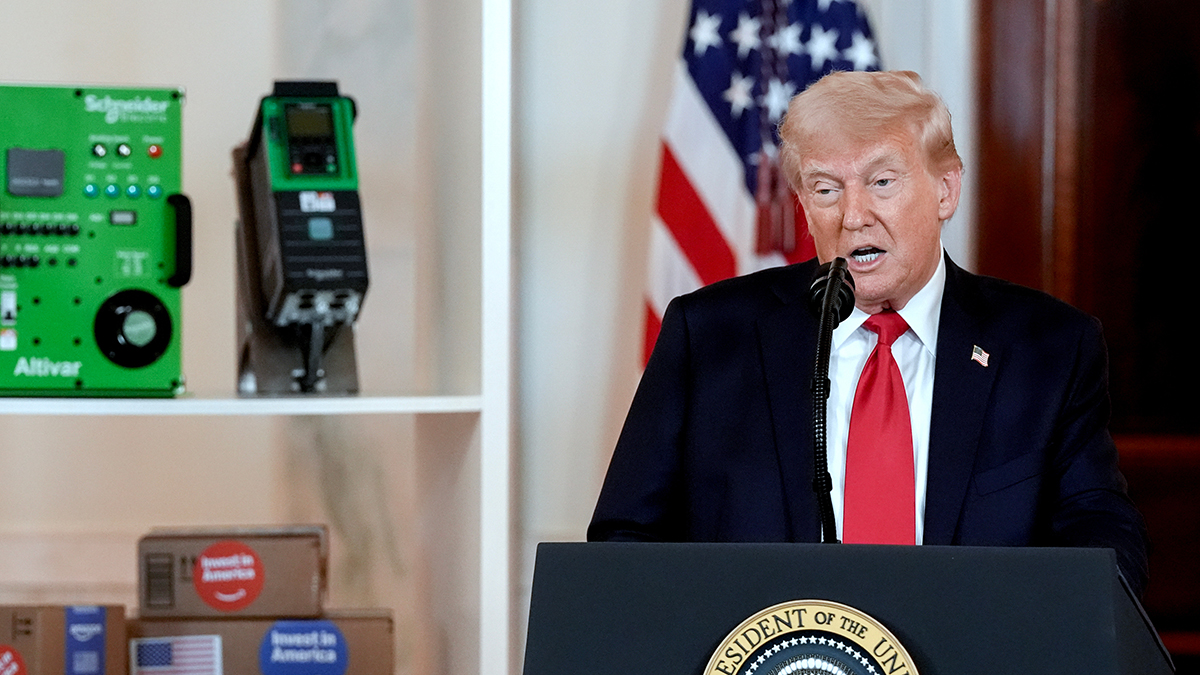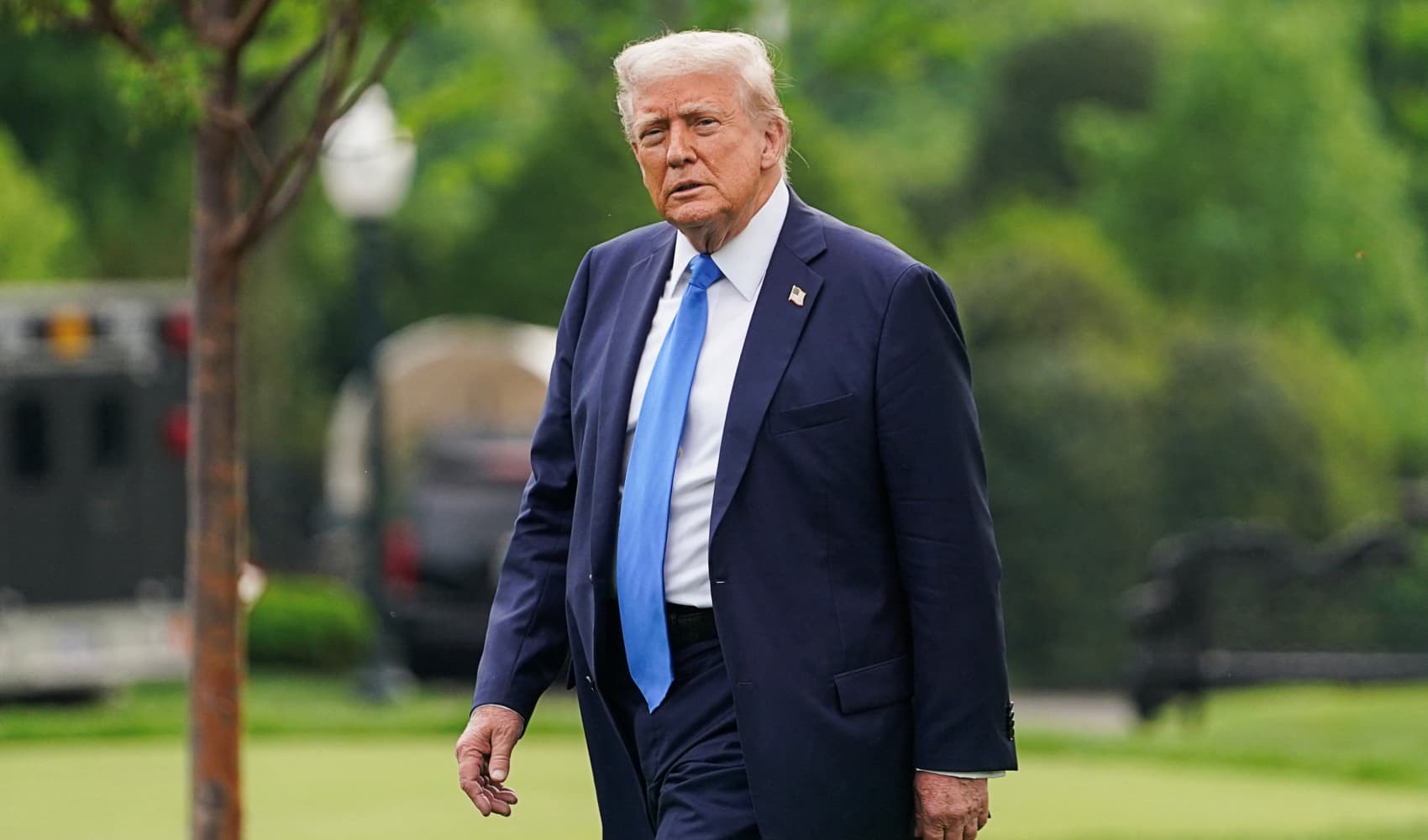Trump Blames Biden for Economy: Truth or Political Spin?
Trump Blames Biden for Economic Slump: A Nation Divided?
Introduction: The Blame Game Begins
Here we go again! In the ever-turbulent world of politics, finger-pointing is practically an Olympic sport. This time, it's former President Trump laying the blame squarely at the feet of the current administration, specifically targeting President Biden for the country's recent economic woes. But is it really that simple? Let's dive into the details and separate fact from political rhetoric. The economy is a complex beast, after all. Are Biden's policies really the root cause, or are there other factors at play? We'll explore the data, the arguments, and the implications for the future of the American economy.
Analyzing the Economic Data: A Reality Check
According to reports from April 30, 2025, the U.S. GDP experienced a contraction of 0.3% during the first three months of President Trump's second term. This is the data point Trump is likely referencing. Now, let's break this down. One quarter doesn't necessarily make a trend, right? But it's certainly a headline-grabber. What does this contraction actually mean for the average American? Are we talking about a minor blip or a sign of deeper economic problems? A single data point like GDP is a snapshot in time, but the economy is a movie, so lets continue analyzing.
GDP Contraction Explained
A Gross Domestic Product (GDP) contraction means the economy produced fewer goods and services during that period. This can lead to businesses slowing down, potentially laying off workers, and overall economic uncertainty. But is it solely Biden's fault? That's the million-dollar question. Many factors could contribute to this. A change in GDP in any direction has a big impact on how people feel about the economy, which is why it is so heavily politicized.
Trump's Perspective: A Critical Look
From Trump's perspective, this contraction is a direct result of Biden's economic policies. He likely argues that Biden's spending initiatives, regulations, or trade policies have stifled economic growth. It's worth remembering that Trump's rhetoric often simplifies complex issues. Are these criticisms valid? We need to examine the specific policies he's targeting and assess their actual impact on the economy.
Specific Policies Under Scrutiny
Which specific policies is Trump likely criticizing? Perhaps he's targeting Biden's infrastructure bill, his environmental regulations, or his efforts to address income inequality. Each of these policies has potential economic consequences, both positive and negative. It all depends on who you ask. Each side cherry-picks the data they like.
Biden's Defense: Countering the Claims
Of course, the Biden administration would likely offer a different explanation for the economic data. They might argue that the contraction is a temporary setback, or that it's a consequence of global economic factors beyond their control. They might also point to other positive economic indicators, such as job growth or rising wages. Is Biden to blame, or just the unlucky person at the helm when a recession hits?
The Global Economic Context
It's crucial to remember that the U.S. economy doesn't exist in a vacuum. Global events, such as international trade disputes, geopolitical instability, or fluctuations in commodity prices, can all have a significant impact on the American economy. Ignoring these factors would be like trying to understand the weather without looking at the jet stream.
The Failed Tariff Measure: A Glimpse into Trade Wars
The news that a bipartisan measure to undo Trump's global tariffs failed in the GOP-led Senate is significant. This suggests that protectionist trade policies still have strong support within the Republican party. What does this mean for the future of trade? Are we heading towards a more isolationist economic model, or will free trade eventually prevail?
The Impact of Tariffs: A Double-Edged Sword
Tariffs can be a double-edged sword. On one hand, they can protect domestic industries from foreign competition. On the other hand, they can raise prices for consumers, harm export-oriented businesses, and spark retaliatory tariffs from other countries. It's a delicate balancing act.
The Ukraine Economic Partnership: A Risky Gamble?
The White House's announcement of an economic partnership with Ukraine, including an agreement on natural resource extraction, raises some eyebrows. This could be seen as a strategic move to support Ukraine's economy, but it also carries potential risks. Is it ethical to exploit the resources of a war-torn nation? What are the potential environmental consequences?
Ethical Considerations and Geopolitical Implications
The agreement with Ukraine raises ethical questions about profiting from a country in crisis. It also has geopolitical implications, as it could potentially draw the U.S. deeper into the conflict. It's a complex situation with no easy answers.
The Role of the Federal Reserve: Monetary Policy in Action
Don't forget about the Federal Reserve! The Fed plays a crucial role in managing the economy through monetary policy, such as adjusting interest rates and controlling the money supply. The Fed's actions can have a significant impact on inflation, employment, and economic growth. Is the Fed doing enough to combat inflation? Are their policies too aggressive, potentially risking a recession?
Interest Rate Hikes and Quantitative Easing
The Fed's decisions regarding interest rates and quantitative easing (or tightening) are closely watched by economists and investors alike. Higher interest rates can cool down the economy and curb inflation, but they can also make it more expensive for businesses to borrow money, potentially slowing down growth. This is always a balancing act.
Political Polarization and Economic Narratives
In today's hyper-polarized political climate, it's difficult to have a rational discussion about the economy. Each side tends to spin the data to fit their narrative, making it harder for the average person to understand what's really going on. This political polarization makes it challenging to find common ground and implement effective economic policies. This is what many people refer to when they mention "fake news."
Finding Common Ground: A Difficult Task
Finding common ground on economic issues requires a willingness to compromise and a focus on long-term solutions. Unfortunately, in today's political environment, short-term political gains often take precedence over sound economic policy.
The Long-Term Outlook: Uncertainty Ahead
The long-term outlook for the U.S. economy remains uncertain. Factors such as technological disruption, demographic shifts, and climate change could all have a significant impact on the economy in the years to come. Are we prepared for these challenges? Are we investing enough in education, infrastructure, and renewable energy? These are crucial questions that need to be addressed.
Preparing for the Future: Investment and Innovation
Investing in education, infrastructure, and renewable energy is essential for building a strong and sustainable economy for the future. We need to foster innovation and create an environment that encourages entrepreneurship and job creation.
Conclusion: Navigating the Economic Storm
So, is Trump right to blame Biden for the economic woes? The answer, as with most things in life, is complex. While the GDP contraction is a concerning data point, it's crucial to consider the global economic context, the role of the Federal Reserve, and the influence of political polarization. The truth likely lies somewhere in the middle. Navigating the current economic storm requires a willingness to compromise, a focus on long-term solutions, and a commitment to investing in the future. And don't forget to vote! The economy is always top of mind when people head to the voting booth.
Frequently Asked Questions (FAQs)
Here are some frequently asked questions about the issues discussed in this article:
- What is GDP and why is it important?
GDP, or Gross Domestic Product, is a measure of the total value of goods and services produced in a country during a specific period. It's a key indicator of economic health, as a rising GDP generally indicates a growing economy, while a falling GDP suggests a contraction.
- What are tariffs and how do they affect the economy?
Tariffs are taxes imposed on imported goods. They can protect domestic industries from foreign competition, but they can also raise prices for consumers and spark retaliatory tariffs from other countries.
- What is the Federal Reserve and what does it do?
The Federal Reserve is the central bank of the United States. It manages the money supply and sets interest rates to influence economic activity. Its main goals are to promote full employment and stable prices.
- How does political polarization affect the economy?
Political polarization can make it difficult to reach consensus on economic policy, leading to gridlock and ineffective solutions. It can also create uncertainty and volatility in the markets.
- What are some long-term challenges facing the U.S. economy?
Some long-term challenges facing the U.S. economy include technological disruption, demographic shifts (like an aging population), climate change, and rising income inequality.

